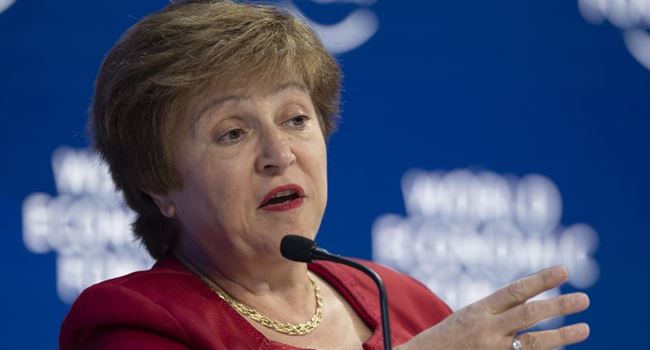Business
Countries without crude oil better off than Nigeria —IMF

The International Monetary Fund (IMF) on Thursday announced that oil-dependent economies like Nigeria’s continued to perform worse than countries dependent on other exports. According to the organisation, the trend has been on since the crash in oil prices in 2014.
The IMF disclosed this in its policy paper on macroeconomic developments and prospects in Low-Income Developing Countries (LIDCs), a paper it said its executive directors deliberated on on 13 November, 2019.
The LIDCs comprise 59 IMF member countries specifically defined by income per capita level below a certain threshold (fixed at $2,700 in 2016).
“The LIDCs are expected to record average annual growth of some five per cent in 2018-2019, a reasonably robust performance against the backdrop of loss of momentum in the global economy,” the organisation stated.
“Looking ahead, growth is expected to pick up marginally in 2020 and beyond, although risks to the global economy threaten this outlook.
“Debt levels in several countries (notably fuel exporters) fell sharply on fiscal tightening and recoveries of GDP and/or real exchange rates (which boosted dollar-equivalent denominators). An important exception is Nigeria, where debt to GDP ratio continued to increase.
Read also: OPay introduces USSD Services to facilitate offline banking. Profit mindset or users ease?
“The number of countries facing serious debt challenges, as assessed by bank-fund debt sustainability assessments, has risen only marginally since 2017, after increasing sharply in the preceding four years,” the IMF added.
The Fund also affirmed as follows: “Among fuel exporters, current account deficits narrowed over the period, helped by recovery in export revenues — except in Nigeria, where recovery in import levels dominated a transitory increase in export revenues in 2018 on the back of higher oil prices.
“Among fuel exporters, the median deficit fell from 5.4 per cent in 2017 to a projected 2.3 per cent in 2019 (below the 3.2 per cent median in 2010–14), with tight financing constraints limiting expenditure growth.
“Nigeria is an outlier in this context, with the fiscal position, though improving, still significantly weaker than in 2010-2014 (the era of high oil prices).
“While spending levels are projected to increase across commodity exporters as a group, the increases are concentrated in less than half of the 30 countries (such as Nigeria, Uzbekistan and Sudan), with spending levels falling in most of the other countries (Côte d’Ivoire, Republic of Congo and Mauritania).”
The Buhari-led administration, however, continues to radiate optimism in the direction of the economy, hinging its confidence in such economic indicators as those supplied by the National Bureau of Statistics (NBS). The bureau’s latest figures note that Nigeria’s economy grew by 2.28% in real terms in the Q3 2019, relative to 2.12% in Q2 and 2.10% in Q1.
Join the conversation
Support Ripples Nigeria, hold up solutions journalism
Balanced, fearless journalism driven by data comes at huge financial costs.
As a media platform, we hold leadership accountable and will not trade the right to press freedom and free speech for a piece of cake.
If you like what we do, and are ready to uphold solutions journalism, kindly donate to the Ripples Nigeria cause.
Your support would help to ensure that citizens and institutions continue to have free access to credible and reliable information for societal development.
























